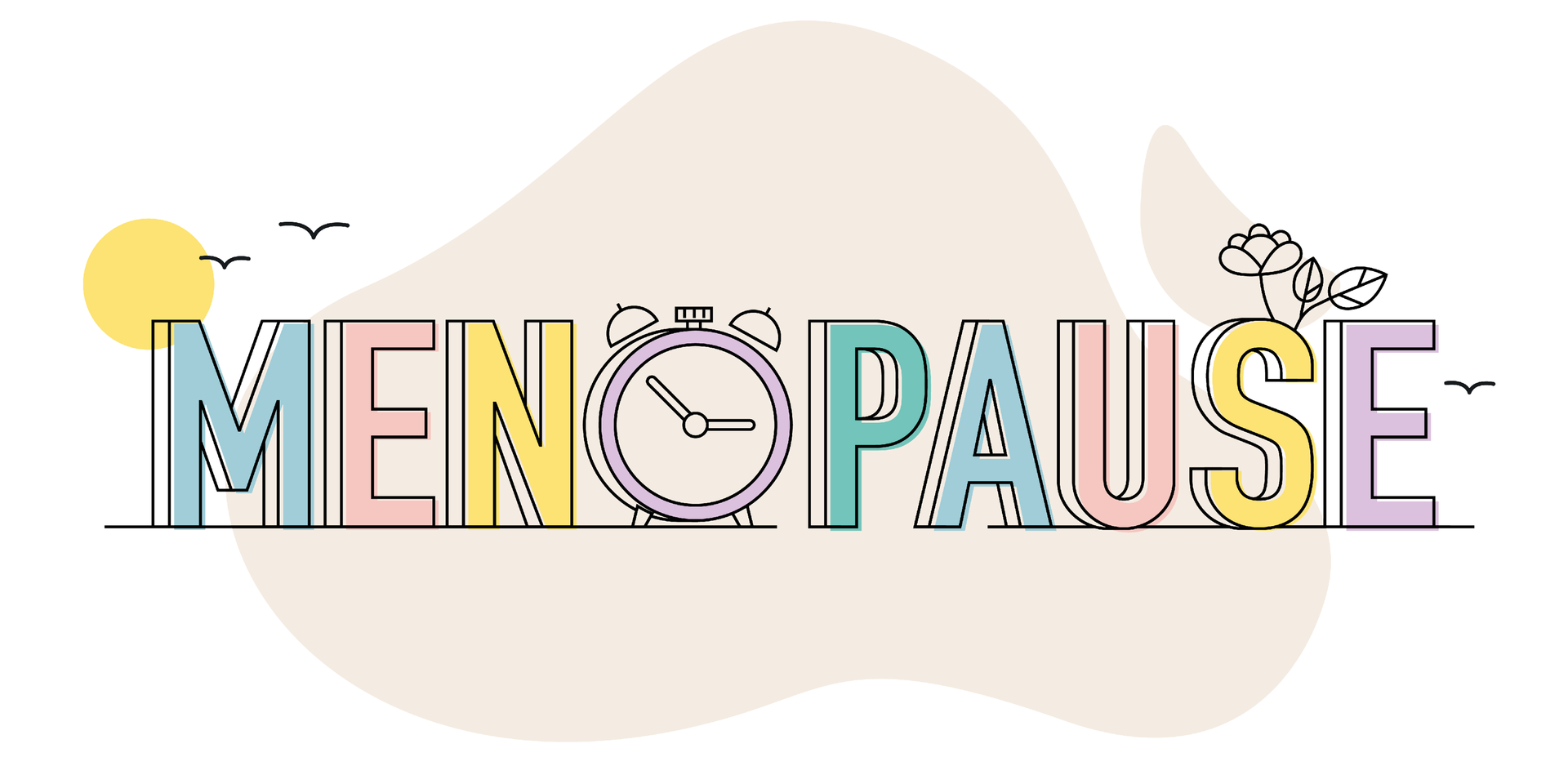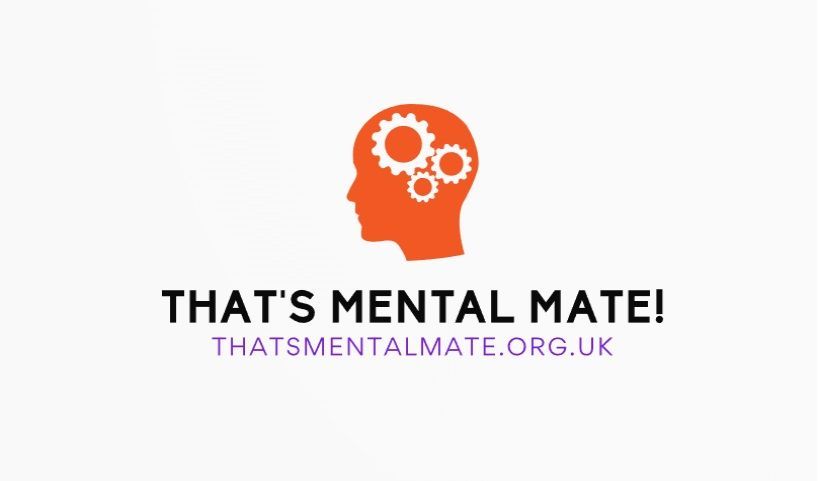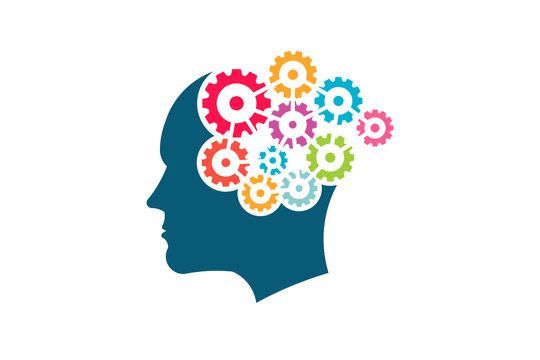Menopause

Menopause is such a big issue that many people, even GP's, don't know much about. It can go hidden for a substantial period of time and this can be very scary for the individual that is suffering. Below is a general round up of what the menopause is but please continue reading as there is much to menopause than first meets the eye.
What is the menopause?
"The menopause is when a woman stops having periods. It's a natural part of ageing that usually happens between 45 and 55 years old."
www.nhs.uk
There is so much more to it than this though.
What are the symptoms of the menopause?
Common symptoms of the menopause include:
- anxiety.
- changes in mood – such as low mood or irritability.
- changes in skin conditions, including dryness or increase in oiliness and onset of adult acne.
- difficulty sleeping – this may make you feel tired and irritable during the day.
- discomfort during sex.
- feelings of loss of self.
- hair loss or thinning.
- headaches or migraines.
- hot flushes – short, sudden feelings of heat, usually in the face, neck and chest, which can make your skin red and sweaty.
- increase in facial hair.
- joint stiffness, aches and pains.
- loss of self-confidence.
- night sweats – hot flushes that occur at night.
- palpitations – heartbeats that suddenly become more noticeable.
- problems with memory, concentration and ‘brain fog’.
- recurrent urinary tract infections (UTIs), such as cystitis.
- urge and stress incontinence.
- reduced sex drive (libido).
- tinnitus.
- vaginal dryness and pain.
- Menopause can also increase your risk of developing certain other problems, such as weak bones (osteoporosis) or cardiac disease.
You can speak to someone at your GP practice about your symptoms and ask if they’re related to menopause. You can also say if you would prefer to see a female rather than a male health professional.
Many women experience symptoms of anxiety, loss of confidence, ‘brain fog’ and other symptoms relating to their mental health during menopause.
These psychological symptoms are a result of the changes happening to your body and can have a big impact on your life.
Sometimes these symptoms are not recognised as menopause symptoms, but if you know what to expect, it can help you decide on what to do to manage the symptoms and feelings you are experiencing.
What are the treatments for the menopause?
Treatment for menopause and perimenopause
The main medicine treatment for menopause and perimenopause symptoms is hormone replacement therapy (HRT), which replaces the hormones that are at low levels.
There are other treatments if you cannot, or choose not to, have HRT.
Hormone replacement therapy (HRT)
HRT is a safe and effective treatment for most going through menopause and perimenopause. Your GP will discuss any risks with you.
HRT involves using oestrogen to replace your body's own levels around the time of the menopause.
There are different types and doses of HRT. Using the right dose and type usually means your symptoms improve.
Oestrogen comes as:
- skin patches
- a gel or spray to put on the skin
- implants
- tablets
If you have a womb (uterus) you also need to take progesterone to protect your womb lining from the effects of oestrogen. Taking oestrogen and progesterone is called combined HRT.
Progesterone comes as:
- patches, as part of a combined patch with oestrogen
- IUS (intrauterine system, or coil)
- tablets
If you have low sex drive because of menopause and HRT does not improve it, you may be offered testosterone.
Benefits of HRT
The main benefit of HRT is that it can help relieve most menopause and perimenopause symptoms, including hot flushes, brain fog, joint pains, mood swings and vaginal dryness.
Hot flushes or night sweats often improve within a few weeks. Other symptoms like mood changes and vaginal dryness can take a few months to improve.
Taking HRT can also reduce your risk of hormone-related health problems including osteoporosis and heart disease.
Risks of HRT
The risks of HRT are small and usually outweighed by the benefits.
If you're interested in HRT, your doctor or nurse can discuss the risks with you.
Testosterone gel for reduced sex drive
If HRT does not help restore your sex drive, you might be offered a testosterone gel or cream. It can help improve sex drive, mood and energy levels.
Testosterone is produced by the ovaries and your levels usually get lower with age.
It's not currently licenced for use in women, although it can be prescribed after the menopause by a specialist doctor if they think it might help restore your sex drive.
You can safely use this at the same time as HRT.
Side effects of using testosterone are not common but include acne and unwanted hair growth.
Testosterone gel or cream can also cause side effects in others if they come into contact with it regularly. To avoid this, wash your hands after using it and cover the area with clothing.
Oestrogen for vaginal dryness and discomfort
Your vagina may become dry, painful or itchy as a result of the menopause and perimenopause.
A GP can prescribe oestrogen treatments you can insert into your vagina, as a tablet, cream or ring. This can also improve any urinary symptoms caused by menopause and perimenopause, like discomfort when you pee.
These vaginal oestrogen treatments do not get into your bloodstream and only work on the bit of the body where you put them. You can use them for the rest of your life. Symptoms usually come back when you stop using them.
It's safe to use vaginal oestrogen with HRT.
Non-hormone medicines
There are non-hormone treatments if your symptoms are having a big impact on your life and you cannot, or choose not to, have HRT.
Hot flushes and night sweats
There are some medicines that can help with hot flushes and night sweats.
These include:
a blood pressure medicine called clonidine
an epilepsy medicine called gabapentin
Talk with a GP about these medicines and their side effects, and if they might be suitable for you.
Mood symptoms
Antidepressants can help with mood symptoms if you've been diagnosed with depression or anxiety.
Cognitive behavioural therapy (CBT)
Cognitive behavioural therapy (CBT) is a talking therapy which can help with:
- low mood and anxiety caused by menopause and perimenopause.
- some physical symptoms like hot flushes and joint pain.
You can get NHS talking therapy without going to a GP first.
Follow-up appointments
If you're having treatment for your symptoms of menopause or perimenopause, you'll need to return to the doctor or nurse who is prescribing your HRT for a follow-up review after 3 months.
When you and your doctor or nurse agree your treatment is working well for you, you'll need to see them once a year.
During your reviews, your doctor or nurse may:
- make sure your symptoms are under control
- ask about any side effects and vaginal bleeding
- check your weight and blood pressure
- review the type of HRT you're taking and make any necessary changes
You may need treatment for a few years, until most of your menopause and perimenopause symptoms have passed.
You can choose to continue taking HRT. The doctor or nurse prescribing your HRT can discuss with you the benefits and risks, so you can decide what’s right for you.
You can take HRT for as long as you need it. You can discuss this with your doctor or nurse at your yearly review.
Complementary and alternative therapies
Complementary and alternative treatments, such as herbal remedies and compounded bioidentical ("natural") hormones, are not recommended for symptoms of the menopause or perimenopause.
This is because it's not clear how safe and effective they are.
Red clover and black cohosh are herbal remedies but there is no strong evidence that they work.
Some complementary and alternative therapies can also interact with other medicines and cause side effects.
Ask your GP or pharmacist for advice if you're thinking about using a complementary therapy.
Compounded bioidentical hormones
Compounded bioidentical hormones are sometimes offered in private clinics as HRT. They are not recommended because it's not known how well they work or how safe they are. They are not available on the NHS.
They are different from regulated bioidentical hormones, also called body identical hormones.
Bioidentical hormones are available on the NHS as HRT. They have been tested to see how well they work and how safe they are.
Now let's talk about menopause
A lot of the shame around menopause is caused by negative attitudes towards women. Their objectification means when they are older and no longer fertile, they are seen as less valuable and are instead 'washed up'. Menopause shouldn't be seen as the end for women. Women should be just as respected as they were before.
As discussed, the menopausal transition can bring hot flashes, trouble sleeping, pain during sex, moodiness and irritability, depression, or a combination of these symptoms. Some may decide to talk with their doctor about lifestyle changes or medications to treat their symptoms.
The problem is that although a lot of the symptoms for menopause are similar in a lot of sufferers, it is different for everybody so you should never say to somebody "oh I've been through that, you'll be fine", "what are you moaning about, just get on with it" or "oh, it's because you're getting old" as this is never correct.
Click the button below to download a printable copy of a menopause symptom chart that you can fill in and take to your GP to discuss your possible options.
HRT vs No HRT
When it comes to using HRT as a treatment for the menopause, people are generally slip into two camps.
- There are those who believe that HRT is safer for those aged below 60 and with very little risk of breast cancer or blood clots. The belief is that HRT will be of more benefit to those people than harmful.
2. Everybody else. If you don't fit into the first category then it is probably likely that you may not be placed on HRT as it may be deemed more harmful than beneficial. This of course is at your doctors discretion and will depend on the severity of your menopausal symptoms.
Severe Depression
During menopause you may start to suffer from depression. This can be for any reason. It may be going through your head that because of the menopause, it is means you're getting older, can no longer have children, are not being recognised for your achievements in life or don't feel like you are being understood by your partner. It could literally be anything. Don't forget that menopause is all about a MAJOR change in your hormones and this can affect your brain dramatically. If you feel your thoughts declining into a negative place, it is of paramount importance that you seek medical help.
Your doctor may place you on antidepressants. If after 3 weeks, you are not feeling any better mentally, you should let your doctor know so that they can try a different antidepressant as not every medication works with every person. This is why there are so many different medications on the market.
It is no joke when saying that severe menopause can cause psychosis and suicidal thoughts, so the earlier you can seek help, the better.
Support
Coming soon


